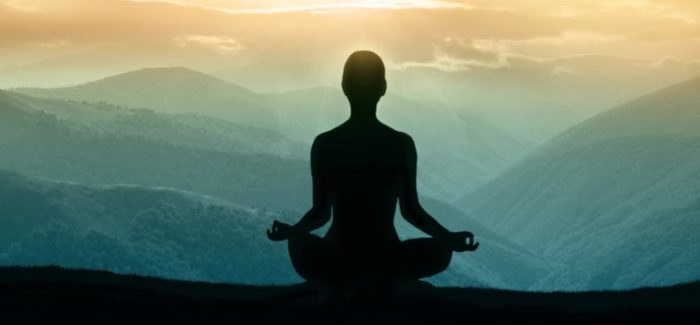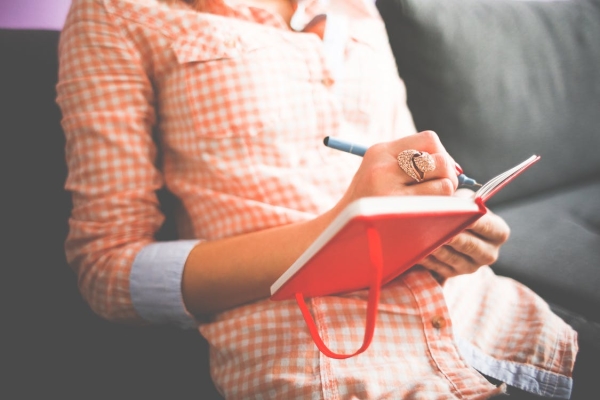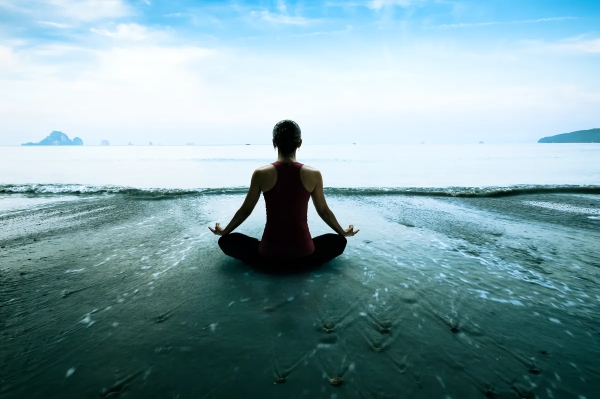Mindfulness and Meditation Practices That Can Help Alleviate Anxiety

There are some situations where everyone gets anxious. Taking tests, making big life-changing decisions, or having too much caffeine are pretty common triggers for most people. But when you start to experience extreme or extended anxiety, you’ll need to find some tools that will help you ground yourself, and bring you back to the present.
Meditation and mindfulness exercises may not work for everyone, but for many people, they can help reduce anxiety, increase focus, and deepen relaxation. Whether you are considering redecorating, how you start your morning, or even how you cook your dinner, mindfulness can help you control your anxious mind.
At the end of the day, you may want to seek out a professional to help you manage your anxiety. If it is significantly impacting your life, and you are unable to manage it through your mindfulness and personal practices, seeking out a therapist can be a vital tool. Many therapists employ mindfulness and meditation practices as a part of their treatments, so becoming familiar with the tools can help make therapy more accessible. But what can you do on your own?
Learn About Anxiety
Anxiety is a pretty broad umbrella term that is used to describe many different types of anxiety disorders and states. With anxiety becoming increasingly common among younger and younger demographics, understanding what type of anxiety you or a loved one are dealing with can go a long way in figuring out how to handle it. Something that can help you understand this is to know what triggers your anxiety.
Though it may feel like everything triggers your anxiety, there are some common situations and activities that trigger people, and learning how anxiety affects others can help you understand yours. Things like the death of a loved one and world circumstances are things that often trigger anxiety. In teens and children, this can be especially heightened by an increased feeling of not having control. Some coping mechanisms that can help anyone include reducing dependence on technology, getting out in nature, and questioning negative thought patterns.
Some triggers may be situational or related to the consumption of caffeine and alcohol. Other situational triggers may include crowds, public speaking, closed spaces, and deadlines. Especially in teens and young adults, unaddressed anxiety can hamper academic and professional advancement and can impact the way that they interact with the world on a basic level. By learning about triggers and coping mechanisms, strategies for working with anxiety can be developed from a young age.
Meditation
Meditation is a tool that many people use to reduce stress and anxiety and increase focus, relaxation, and productivity. Meditative activities go beyond sitting with your thoughts, and many activities can be calming and meditative tools. Regular journaling, for example, can help you stay present, and take a step back from your anxiety. Similarly, studies have shown that coloring can have the same calming, focusing effect on the brain that meditation does. Both of these can provide time and space for processing anxiety, examining thought patterns, and considering triggers.
If you are looking for a more traditional and guided introduction to meditation, there are many apps that can be found to help guide you as an introduction. This can be an excellent place to start since you don’t have to worry about guiding your mind, and most of these resources have tailored meditations for things like anxiety attacks, depression, or professional development. Apps like simple habit and headspace have many free meditations, making them affordable, accessible places to start.
Many additional tools can help aid your meditation practice. Some people burn incense or utilize crystals in their practice to help them focus and gain a deeper connection to themselves and their surroundings. Overall meditation is a very accessible way to start caring for yourself and can help you learn to practice mindfulness.
Mindfulness
Mindfulness is a meditative tool where you focus on the sensations, emotions, and thoughts that you are having at the present moment. You do this without judgment, taking a step back from yourself and the situation, to gain a calmer, better understanding of situations or emotions. Mindfulness can be infused throughout your life to help keep you present and keep your mind from getting caught in the “what ifs” of the future.
Being aware of your environment can also go a long way in helping to soothe anxiety, and can be done with mindfulness. By understanding the effect your environment has on you, you can alter and modify your environment to help calm anxiety, and combat depression. You may not always be able to control your surroundings, but having your home be a calming space can go a long way in calming anxiety. Studies have shown that different colors have different influences on psychology and mood, and can go a long way in making your home a calm, mindful space.
Incorporating mindfulness into your life can help create your anxiety soothing habits throughout your day to day activities. Making actions intentional, being aware of your surroundings, and your response to them, without judgment, can build acceptance of your anxious mind, and change how you respond to it. Using mindfulness
Anxiety can cover a lot of different experiences and can be caused by many different triggers. Ultimately you may want to seek professional support if your life is being significantly impacted by unrealistic fears, panic, and anxiety. Journaling, meditation, and cultivating a mindset of presence can be an extremely important step in beginning to care for yourself and build empathy for your own experiences. By finding the right combination of coping tools for you, you can start your journey of addressing and managing your mental health.






